Blood type identification is a simple and common process, but the effects of getting it wrong can be devastating. Even a small amount of transfused blood of the wrong type can very quickly cause serious illness & even death.
The primary purpose of this experience, as outlined by the requirement of the NHS Blood & Transplant department, is to show how quickly blood agglutination can occur when different blood types are mixed. The aim is to build understanding around how important it is to select the right blood type for transfusions and what can quickly go wrong for the patient if you don’t.
To deliver on that purpose, by the end of this experience learners are able to:
As a pilot stage concept, Make Real and NHSBT worked together closely to ensure maximum value for the limited budget was achievable for development into this important area of training and end use case. Only by developing for Oculus Quest full VR hardware, offering reliable 6DoF tracking, performance and contained standalone nature could VR be deployed within hospital training environments, free from tethers and other hardware requirements, otherwise increasing costs and health & safety risks.
The finesse of the Oculus Touch controllers and their input meant that the delicate, fine motor skills necessary to interact with a pipette and the motion of mixing the blood to enable agglutination to occur, without causing contamination between samples upon the grid, combined with virtual feedback systems to inform the learner of their method suitability and necessary pressure levels.
Despite being a pilot, the design has incorporated a deep matrix of possible variations of patient and blood type, ensuring that the training is more than just learn by doing, but relies upon the learner to apply their knowledge and understanding with each play-through in order to correctly determine blood types as a result of the simulation of agglutination and choosing the correct blood type for transfusion and saving a virtual patient’s life.
This project was the first to be rolled out across NHS using the Oculus for Business enterprise platform for improved security of data, device management and enterprise features including kiosk mode and offline data collection and reporting, as a result of Make Real’s inclusion within the Oculus ISV Partnership programme.
Initial feedback has been overwhelmingly positive but due to deployment date and impact of coronavirus COVID-19 upon the NHS and wider health sectors, full-scale rollout deployment and testing has been put on hold temporarily as associated stakeholders have been positioned within the emergency response teams. However it has already opened up avenues of discussion around other use cases to apply VR training to, within NHS L&D and the wider organisation, beyond the stereotypical expected uses.
The VR training application was nominated in the AIXR VRAwards 2020 for the “VR for Healthcare” category.
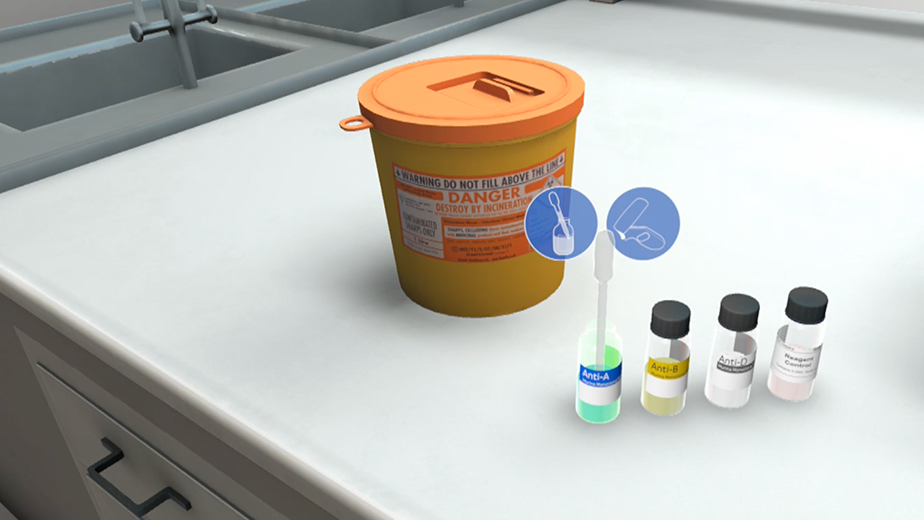
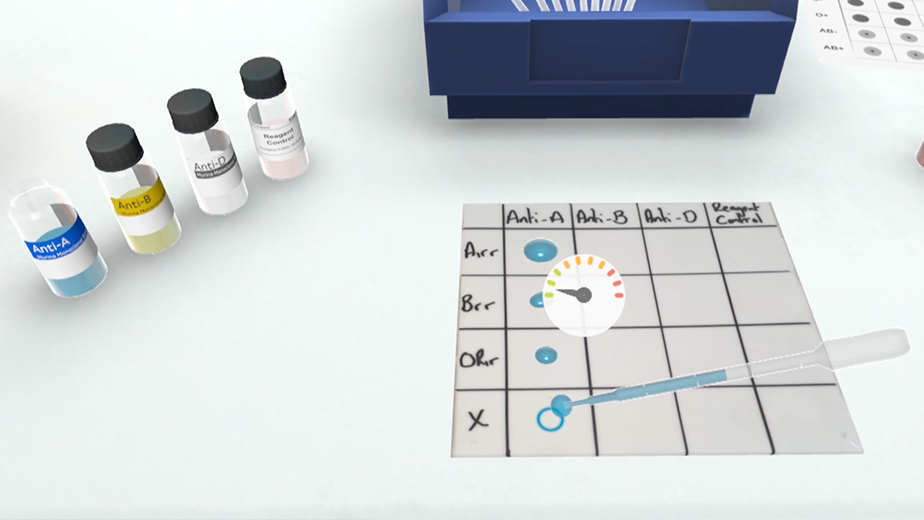
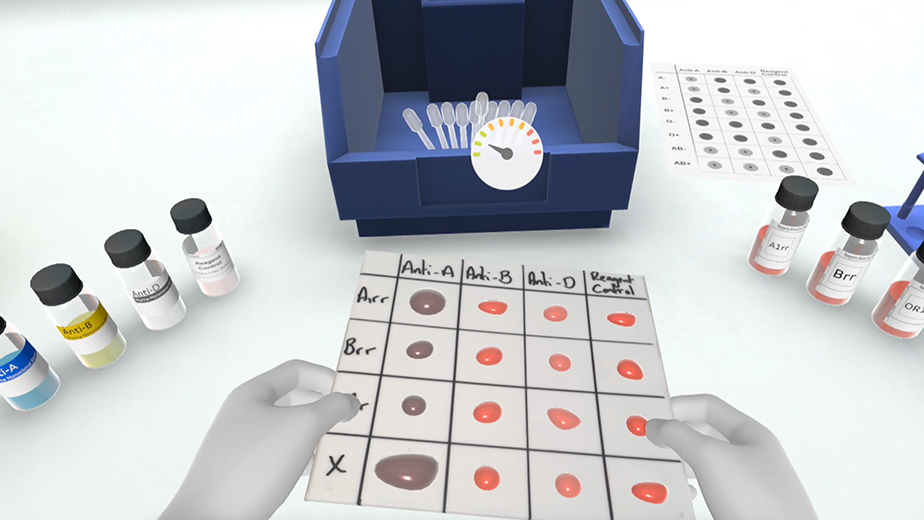
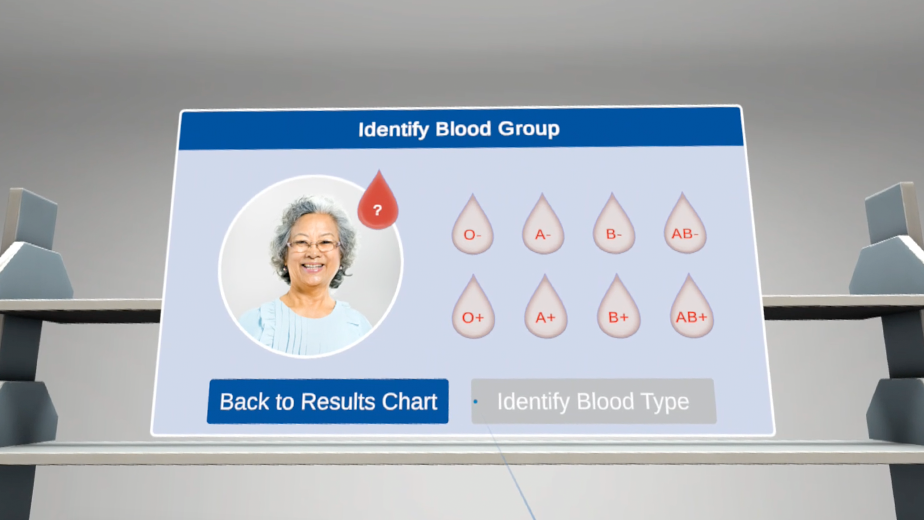
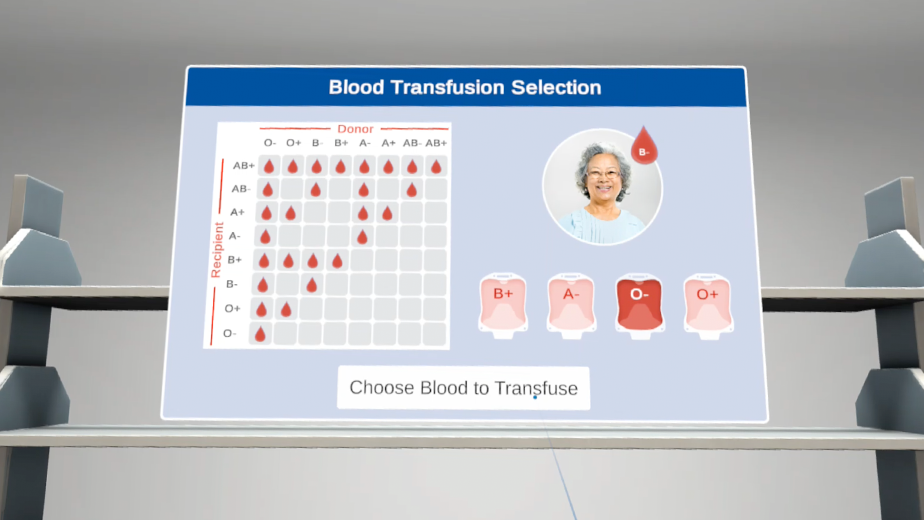
We’re always happy to talk to you about how immersive technologies can engage your employees and customers. If you have a learning objective in mind, or simply want to know more about emerging technologies like VR, AR, or AI, send us a message and we’ll get back to you as soon as we can.